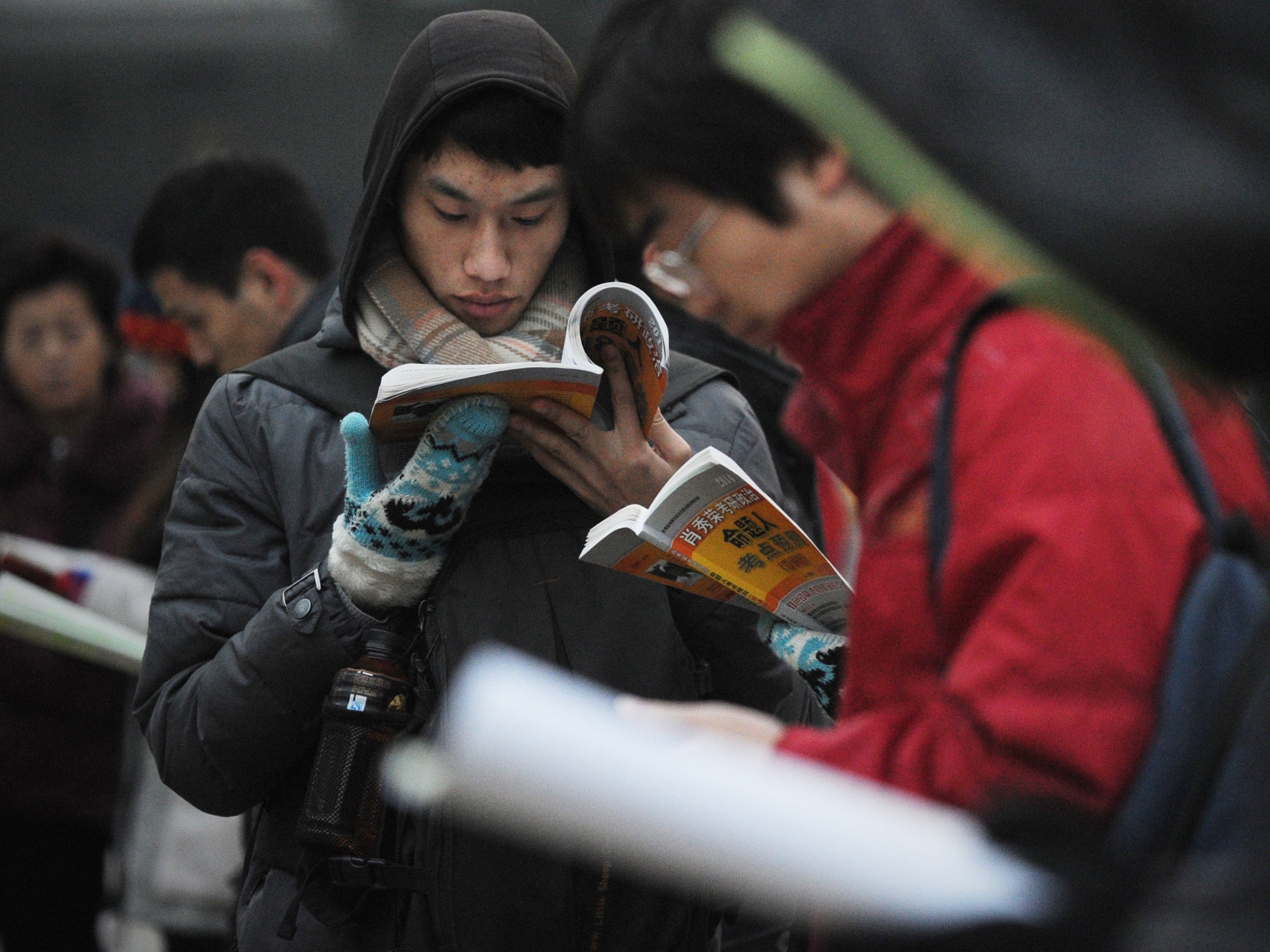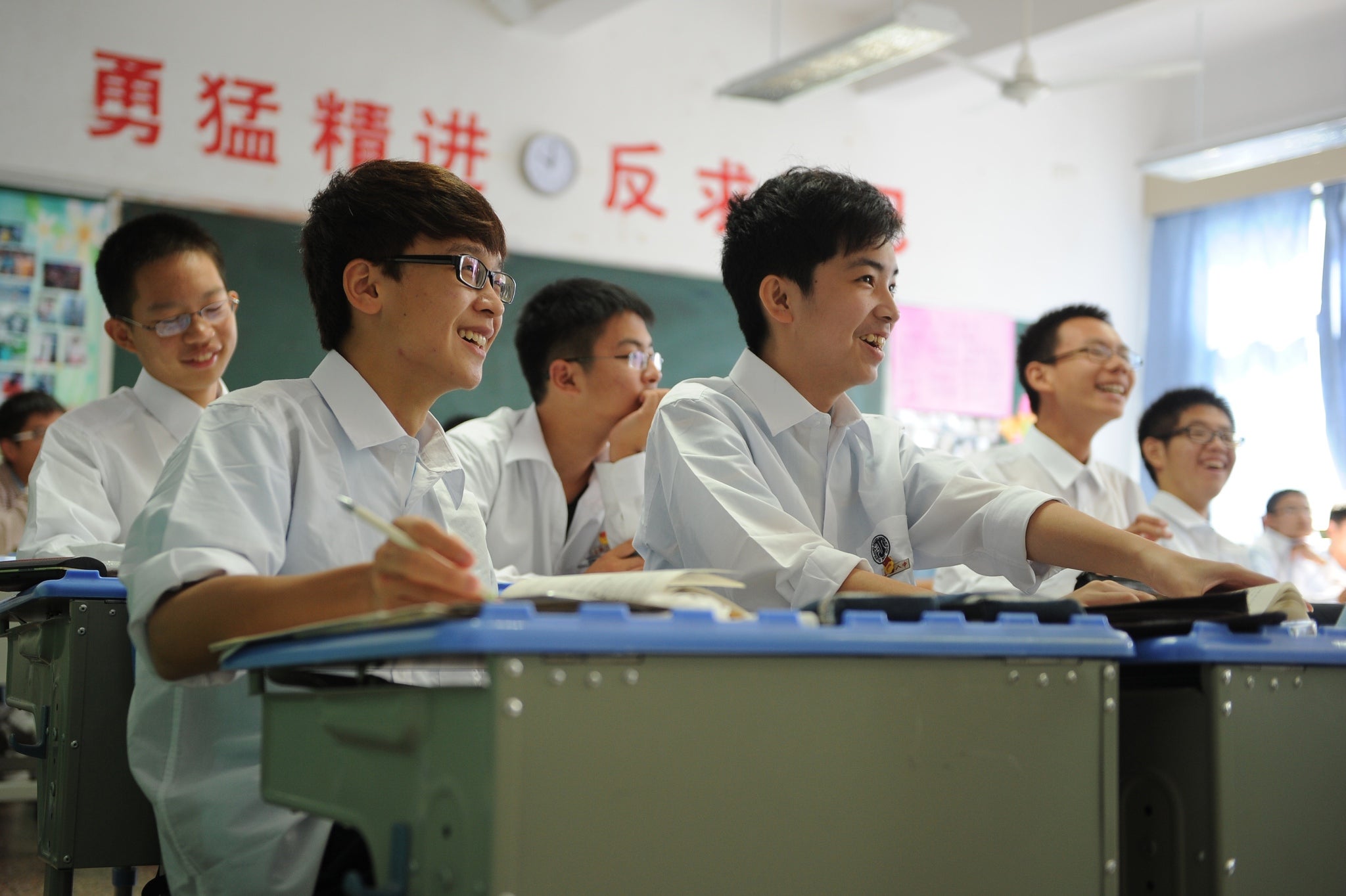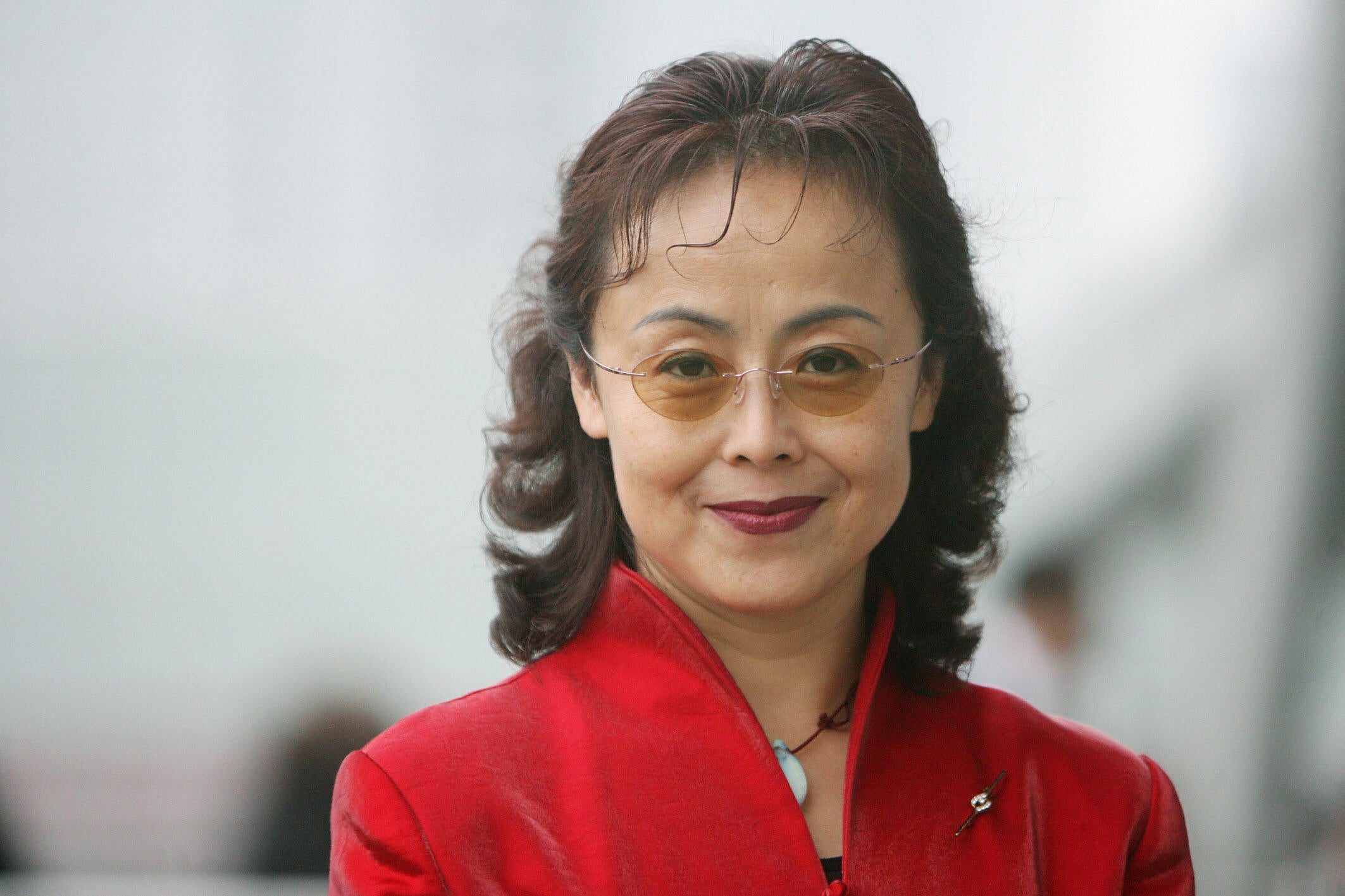Is China's world-beating school system really the best for students?
Chinese students may top league tables, but some people think their actual education is lacking

Your support helps us to tell the story
From reproductive rights to climate change to Big Tech, The Independent is on the ground when the story is developing. Whether it's investigating the financials of Elon Musk's pro-Trump PAC or producing our latest documentary, 'The A Word', which shines a light on the American women fighting for reproductive rights, we know how important it is to parse out the facts from the messaging.
At such a critical moment in US history, we need reporters on the ground. Your donation allows us to keep sending journalists to speak to both sides of the story.
The Independent is trusted by Americans across the entire political spectrum. And unlike many other quality news outlets, we choose not to lock Americans out of our reporting and analysis with paywalls. We believe quality journalism should be available to everyone, paid for by those who can afford it.
Your support makes all the difference.China's education system is the envy of many Western governments, who are keen to replicate the nation's high test scores and levels of discipline in their own schools.
However, the realities of schooling in China, looking beyond the exam results of pupils, often prompt Western critics to say that they promote a narrow and limiting education for the country's children.
In a discussion on British and Chinese education on BBC Radio 4's Today programme, the Programme for International Student Assessment (PISA) scores that rank global education, and have placed Chinese students (specifically those from Shanghai) at the top in recent years, were called into question.
"The only people who believe the PISA league tables are the BBC and the Department for Education," said journalist Simon Jenkins, in the discussion with Chinese journalist and author Xinran Xue.
"They're just rubbish," he continued. "You can do anything with 15-year-olds if you treat them like baby Communists. This isn't about education, it's about scoring."

The PISA tables seemingly tell us everything about the relative skills of teenagers around the world in reading, maths and sciences, and are commonly used to name the nations with the 'best' education systems.
However, they routinely face criticism, including claims that the tests ignore cultural backdrops to students' learning (such as the heavy pressure to perform placed on many Chinese pupils), neglect to take into account civic, artistic and moral development, and encourage short-term fixes such as rote learning that help nations and schools climb league tables, but don't necessarily provide education to students.
Xue pointed out the cultural differences at play in British and Chinese schools.
She said: "In China, when the students come to the classroom, you have to tell them you must learn something - it is your duty to the country, to the nation, to your family."
She said that in Britain, priorities are much different, with students being told to ask, "what's your future, what do you want for yourself?"
"That's a very different philosophy," she said.
She also explained that strong Chinese beliefs in family values and hierarchy also made their way into the classroom - saying that students are expected to respect their older peers, and that teachers are never to be questioned.
Underlining the essential cultural differences, Simon Jenkins said: "We tend to teach rebellion, disruption, invention," and have less emphasis on rote learning.

"If you line up 100 15-year-olds and drill maths into them for 12 hours a day, they'll come out with great results" - but not necessarily a good education, he said.
The short discussion came ahead of a new BBC 2 documentary, Are our kids tough enough? Chinese School, which begins on 4 August.
In the programme, five teachers from China take over the education of fifty teenagers at a Hampshire comprehensive school - in an effort to see whether the Chinese system of collective thinking, duty and strict learning can benefit English teenagers.
Past Education Secretaries like Michael Gove have encouraged schools to try and emulate the Chinese system - but with around a third of China's growing well-off middle class reportedly aspiring to send their children to the West for their education, it seems that good grades may not be the be-all and end-all of education.
Join our commenting forum
Join thought-provoking conversations, follow other Independent readers and see their replies
Comments